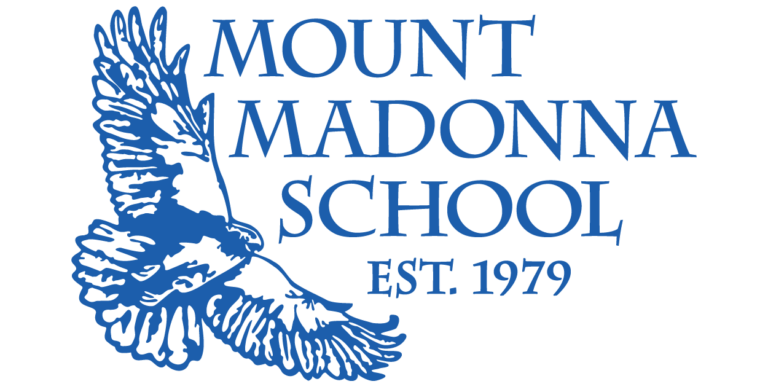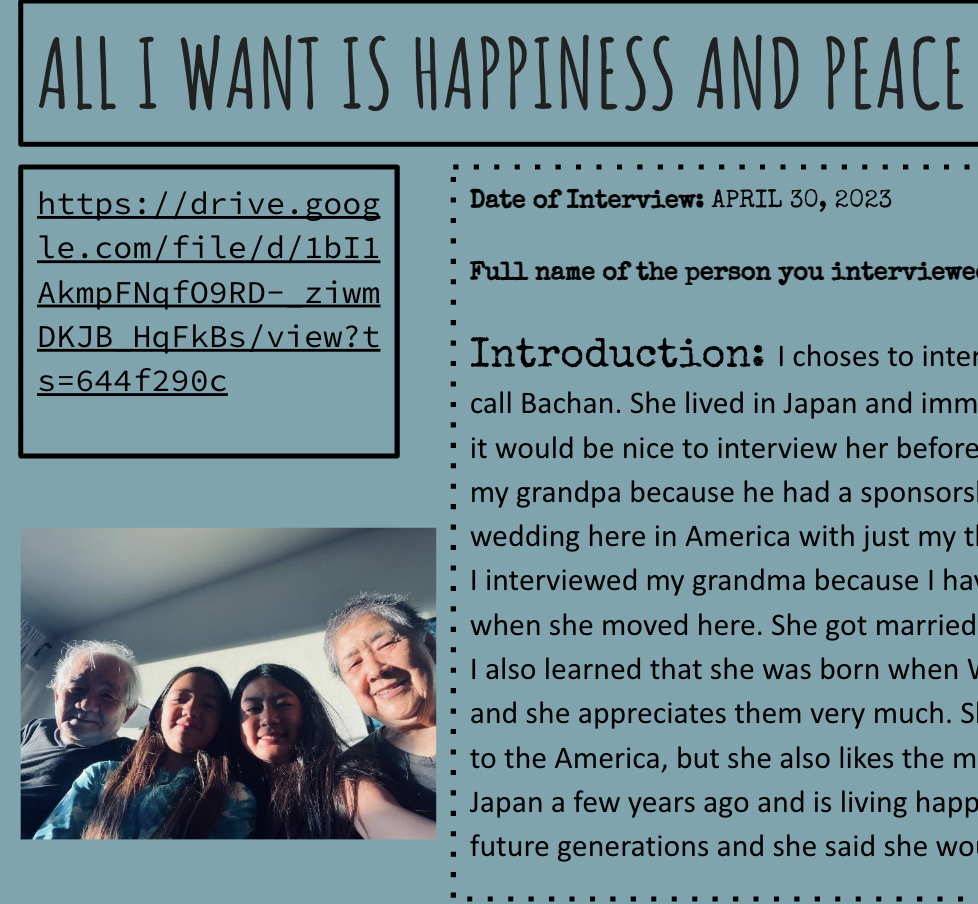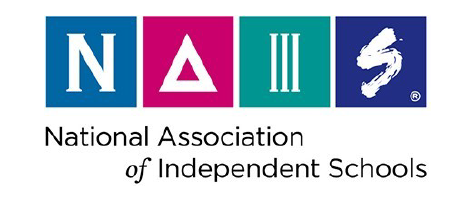Sixth and seventh grade World History students at Mount Madonna School learned to craft engaging interviews in the style of National Public Radio (NPR) programs by digging into their own family histories.
style of National Public Radio (NPR) programs by digging into their own family histories.
“Oral history is a technique for generating and preserving original, historically interesting information – primary source material – from personal recollections through planned, recorded interviews,” said teacher Chrislaine Miller. “This method of interviewing is used to preserve the voices, memories and perspectives of people in history.”
Miller modeled the project after the StoryCorps History Project, a national organization that produces interviews of extraordinary “ordinary” people that are stored at the Library of Congress and often featured on NPR.
 The assignment was to conduct a recorded interview with a parent, grandparent, or another family member and share their recordings in class, if students were comfortable doing so.
The assignment was to conduct a recorded interview with a parent, grandparent, or another family member and share their recordings in class, if students were comfortable doing so.
This project arose when Miller began thinking about the developmental change that often occurs in middle school in which children stop talking to their parents and grandparents, and how she can help open lines of communication between parents and children during these formative years.
“The goal of this project is for each student to learn something about their parent or grandparent, and go ‘wow, I never knew that about you’,” Miller said. “Both sides can benefit from this kind of experience. It’s so important for social-emotional wellness to keep those lines of communication open during the middle school years.”
To prepare, students practiced interview techniques with each other – which translate to good communication skills – such as how to ask insightful questions, how to actively listen, and how to come up with follow-up questions on the spot. Then, the students conducted their interviews at home.
spot. Then, the students conducted their interviews at home.
The results were projects that told surprising and important stories of war, immigration, perseverance and hope.
Sixth grade student Cadence Barr learned all about John F. Kennedy’s assassination through her grandfather, who was witness to that moment in history.
“This interview is about what my grandpa felt and thought,” said Barr.
Minami Wu, seventh grade, interviewed her grandmother and learned about her life before and after immigrating to the United States from Japan.
“I wanted to make sure I interviewed my grandma because I had never heard her talk about what happened when she moved here,” said Wu. “She got married and had two kids, one of which is my mother. I also learned that she was born when World War II ended. I asked ‘what would you like to see in future generations,’ and she said she would love to see ‘happiness and peace’!”
 Sixth grade student Amelie Thams’ interview with her father, who recalled his father’s stories of serving in the Danish Resistance in World War II, was featured on the StoryCorps website and is stored in the Library of Congress.
Sixth grade student Amelie Thams’ interview with her father, who recalled his father’s stories of serving in the Danish Resistance in World War II, was featured on the StoryCorps website and is stored in the Library of Congress.
“I was curious to know how the war made his life difficult,” Thams said. “I was surprised to learn about the pranks my grandfather used to play on the Nazi soliders when he was a boy and what happened when he almost got caught.”
Miller expressed pride at her students for capturing such wonderful oral stories from their families.
“It goes to the heart of what we do in middle school at Mount Madonna School,” said Miller. “We are always looking for ways to keep our students interested, learning, and keeping them connected to the people who love them, because this is such a tender time for children.”




